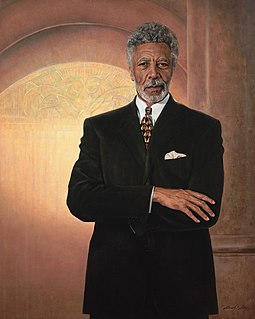Цитата Милтона Фридмана
. . . говорить о радикальных изменениях стоит не в расчете на то, что они будут приняты быстро, а по двум другим причинам. Один из них — сконструировать идеальную цель, чтобы о постепенных изменениях можно было судить по тому, приближают ли они институциональную структуру к этому идеалу или удаляют его от него. Другая причина совсем другая. Это делается для того, чтобы в случае возникновения кризиса, требующего или способствующего радикальным изменениям, были доступны альтернативы, которые были тщательно разработаны и полностью изучены.
Темы цитат
Принятые
альтернативы
Возникают
Доступны
Вдали
Были
тщательно
изменены
Изменения
Конструируют
Кризис
Развиты
Различные
Обсуждение
Ожидания
Исследованы
Полностью
Цель
Идеальное
Постепенные
постепенные изменения
Институциональные
оцененные
Перемещение
Другие
радикальные
радикальные
изменения
Причина
Причины
Структура В
сторону
двух
Очень
стоит
ли
Связанные цитаты
Мне посчастливилось опираться на работу нескольких людей, которые уже бегали кругами по этой теоретической трассе. Первоначальная схема классификации много лет назад отличала радикальные изменения от постепенных. Теория гласит, что устоявшиеся фирмы хорошо справляются с постепенными изменениями, но можно ожидать, что они разорятся, когда их отрасль столкнется с радикальными изменениями.
Коммуникационные технологии изменяют возможности общения, но это не значит, что они изменяют унаследованную структуру мозга. Таким образом, вы можете думать, что у вас зависимость от онлайн-чтения, но как только оно становится недоступным, ваш мозг довольно быстро приспосабливается к другим формам чтения. Это привычка, как и все привычки.
Я против войны, против насилия, против насильственной революции, за мирное урегулирование разногласий, за ненасильственные, но тем не менее радикальные перемены. Нужны перемены, а насилие на самом деле ничего не изменит: в лучшем случае оно только передаст власть от одной группы упрямых авторитетов к другой.
В современном мире есть плавающее отвлечение, жизнь на расстоянии, обеспечиваемая технологиями. Я хочу, чтобы люди действовали на уровне своей субъективности. Идея субъективной приверженности лежит в основе этики, она отделяет самость от самой себя. Я становлюсь этическим я. Я не могу соответствовать этому идеалу, я не могу его осуществить, он отделяет меня от самого себя и заставляет прилагать больше усилий. Это идеальное субъективное этическое стремление лежит в основе абсолютно серьезной, радикальной политики, которая настаивает на том, чтобы люди могли взаимодействовать друг с другом, и в этот момент они освобождаются от иронии.
Две радикальные идеи были введены в человеческую мысль. Один из них заключается в том, что энергия и материя — это почти одно и то же. Это Эйнштейн. Другое дело, что месть — плохая идея. Месть — чрезвычайно популярная идея, но, конечно же, Иисус пришел вместе с радикальной идеей прощения. Если вас оскорбили, вам придется свести счеты. Так что это изобретение Иисуса столь же радикально, как и изобретение Эйнштейна.





































